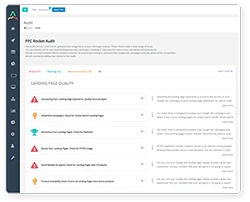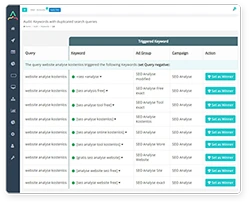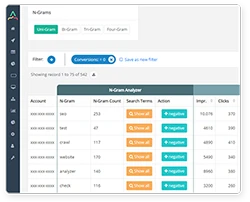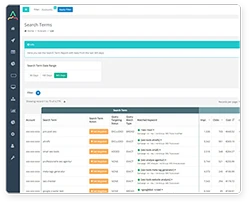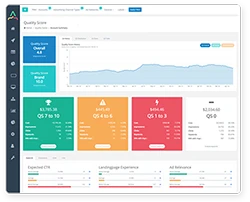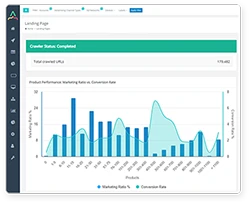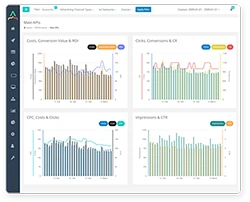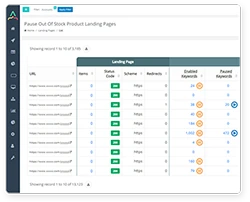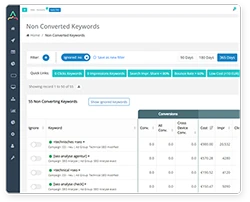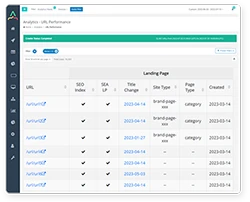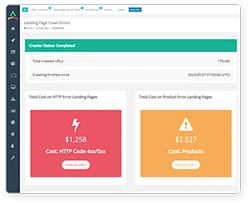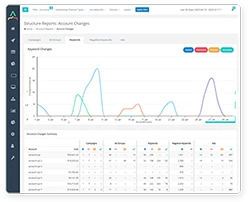Introduction
This is the third article in a four-part series. If you haven’t checked out the first two parts (Part 1, Part 2), be sure to start from there. Also, proceed to the fourth part to learn more.
Google Ads allows businesses to target their audience by displaying ads based on specific keywords. Therefore, choosing the right keywords is essential for the success of a Google Ads campaign. This article outlines the steps to choosing the best keywords for Google Ads.
Start Creating Better Google Ads
See how PPC Rocket can help you achieve best practices when it comes to Google Ads. Optimize your ad spend with all the tools you need to measure, track, and improve performance.
Identify Your Target Audience
The first step to choosing the best keywords for Google Ads is to identify your target audience. Understanding your target audience is crucial to selecting keywords that will resonate with them. You can use tools such as Google Analytics to gather data on your website visitors to help you identify your target audience's demographics, interests and behaviours.
Brainstorm Relevant Keywords
Once you have identified your target audience, the next step is to brainstorm relevant keywords. Start by creating a list of keywords that are relevant to your products or services. Think about the words that your target audience would use when searching for your products or services on Google. You can also use tools such as Google Keyword Planner to help you generate keyword ideas.
Research Your Competitors
Researching your competitors is another important step to choosing the best keywords for Google Ads. Analyse your competitors' websites and ad campaigns to see their keywords. This will give you an insight into what keywords are working for them and can help you refine your list of keywords.
Choose Long-Tail Keywords
Long-tail keywords are highly specific phrases that are longer and more detailed than generic keywords. They are more likely to convert into sales because they are more targeted and specific. For example, instead of using the keyword "shoes", you could use the long-tail keyword "women's black leather boots". Long-tail keywords are also less competitive, which means they can be more cost-effective.
Use Negative Keywords
Negative keywords are words or phrases that you do not want your ads to appear for. For example, if you sell luxury watches, you may not want your ads to appear for searches related to "cheap watches". By using negative keywords, you can eliminate irrelevant searches and ensure that your ads are only displayed to users who are likely to be interested in your products or services.
Test and Refine Your Keywords
Once you have chosen your keywords, testing and refining them is essential. Start by creating a small campaign with a limited budget to test your keywords. Analyse the performance of your ads and adjust your keywords accordingly. Continue to refine your keywords over time to improve the performance of your Google Ads campaigns.
Consider Ad Relevance and Quality Score
When choosing the best keywords for your Google Ads campaign, it's essential to consider ad relevance and quality score. Ad relevance is the measure of how closely your ad matches the keywords you are targeting. The higher your ad relevance, the more likely your ad is to be shown to users searching for those keywords. Quality score is a measure of the overall quality of your ad, including factors such as ad relevance, click-through rate, and landing page experience.
Use Keyword Match Types
Keyword match types allow you to control which searches trigger your ads. There are four keyword match types: broad match, broad match modifier, phrase match, and exact match. Broad match will display your ad for any search that includes your keyword or a variation of it. Broad match modifier will display your ad for searches that include your keyword or close variations.
Conclusion
Choosing the best keywords for Google Ads is essential for the success of your online advertising campaign. Remember, choosing the right keywords is not a one-time process, and you should continuously monitor and refine your keywords to ensure the success of your Google Ads campaign.
If you're looking for a way to take your Google Ads campaign to the next level, then look no further than PPC Rocket! Our powerful SaaS tool offers six essential modules to help you optimise your ad spend and boost your ROI. Say goodbye to expensive Google ads agency fees and try PPC Rocket today!
Start Creating Better Google Ads
See how PPC Rocket can help you achieve best practices when it comes to Google Ads. Optimize your ad spend with all the tools you need to measure, track, and improve performance.
Share with
Articles
Discover New PPC Marketing Tips, Strategies, and Insights
APRIL 05, 2023

The Secret to Keyword Selection for Google Ads - Part 1
Looking to boost your online presence and drive more traffic to your website with Google Ads? Choosing the right keywords is crucial to success. In this article, we explore the difference between low and high search volume keywords and when to use each to maximise your results.
APRIL 20, 2023

Google Ads - A Marketing Must-Have for SMEs and E-commerce Part 2
E-commerce businesses can increase online visibility, drive traffic, and boost sales through Google Ads. This platform provides targeting capabilities, product listing ads, remarketing, measurable results, and mobile advertising options. With Google Ads, businesses can create targeted ads that appear on Google search results pages and other partner websites. By optimising their advertising campaigns for maximum ROI, e-commerce businesses can take advantage of the significant opportunity presented by online shopping.
JUNE 13, 2023

A Guide to Setting up Google Ads for Your E-commerce Site
In this blog post, we will discuss how to set up online store Google Ads for peak performance. Check this out!
DECEMBER 20, 2022

Google Ads Account Structure
This article will give you some key advice for structuring different elements of your Account, from Campaigns and Ad Groups to individual Keywords and Ads.
4.7 Star (104 reviews)
Customer rating
Start Creating Better Google Ads
See how PPC Rocket can help you achieve best practices when it comes to Google Ads. Optimize your ad spend with all the tools you need to measure, track, and improve performance.
Try PPC Rocket for Free